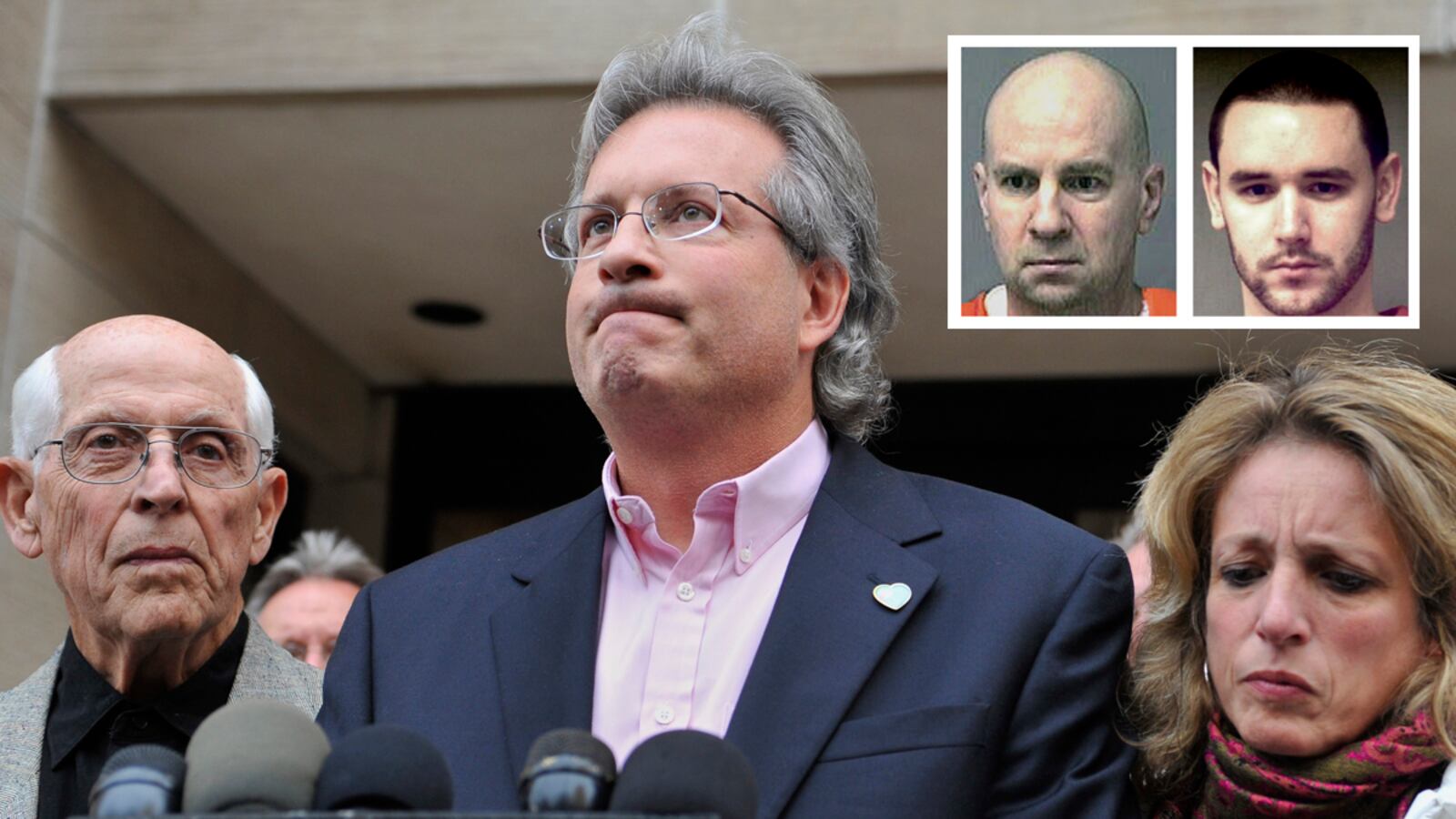On the website of The New York Times, there’s an old photo of a man named William Petit standing next to his wife, Jennifer, and their two daughters, Hayley and Michaela, 17 and 11. They look peaceful and content, a portrait of happiness.
Dr. Petit is the only one of the four still alive. On Aug. 6, 2007, his wife and daughters were brutally murdered in their Cheshire, Connecticut home. The manner of their shocking deaths helps explain an otherwise bizarre development: The Connecticut legislature is going to abolish the death penalty, but not until the Petit killers are put to death.
In a crime so chilling that even some death-penalty opponents I know reconsidered their opposition, Steven Hayes and Joshua Komisarjevsky entered the Petit house at three in the morning. They beat Dr. Petit unconscious with a baseball bat, tied him up in the basement, and went upstairs. There, Hayes raped Jennifer while Komisarjevsky attacked Michaela. The men strangled Jennifer to death and tied the girls to their beds. Then they set the house on fire.
With his legs still bound, Dr. Petit broke out of the basement and stumbled across the yard. He screamed to his neighbor for help. Twelve hours later, Hayes and Komisarjevsky were under arrest. Connecticut juries sentenced both men to death.
And now they are the last two men to be sentenced to death in the state, because last week, by a vote of 20 to 16, the Connecticut Senate voted to abolish the death penalty. The bill will now move to the House, where it is certain to pass, before being signed by Gov. Daniel Malloy.
Yet Hayes and Komisarjevsky, along with nine other inmates, remain on Connecticut’s death row, their sentences unaffected by the new law. How can that be? How is it possible for a legislature to decide that the death penalty should be eliminated, but only after we first execute 11 more men?

I believe the answer to that question has to do with two troubling features of the modern anti-death-penalty movement. The first is the excessive reliance on the concept of innocence. The second is the often tepid, tone-deaf response from the abolitionist community to unspeakable crimes like the one that destroyed the Petit family.
The innocence revolution—driven largely by advances in DNA analysis—has been undeniably dramatic. Forty-four states now have innocence projects devoted to identifying and helping gain the release of innocent prisoners. Nationwide, nearly three hundred men have walked out of prison exonerated, after DNA proved beyond question we sent the wrong man to jail.
And as these cases began to permeate the public consciousness, death-penalty opponents seized on them as a tactic: None of those 289 exonerated inmates, they said, would have been released if he had been executed. The possibility of error became the central argument in the abolitionist brief.
Measured along one metric, the tactic has paid off: When the most recent abolition becomes official, Connecticut will be the fifth state in the past five years (along with New York, New Jersey, New Mexico, and Illinois) to have repealed the death penalty.
But that metric does not tell the full story. Connecticut has not actually executed anyone since Michael Ross, who waived his appeals, was put to death almost seven years ago. Before Ross, the state had not executed anyone in more than 30 years. In Illinois, New York, New Jersey, and New Mexico, there were a combined 26 people on death row when capital punishment was stricken from the books.
In contrast, in the remaining death penalty states, more than three thousand men await execution.
With Connecticut now on the abolition side of the ledger, only 10 of the 33 states with a death penalty have executed someone in the past five years. Meanwhile, Texas alone has executed nearly half the people put to death in America since 2007 (102 out of 232).
Put differently, in the states where the action is, innocence doesn’t seem to matter much. Texas Gov. Rick Perry (and George W. Bush before him), the state court judges, the federal court judges, and the members of the Board of Pardons and Paroles, have had their attitudes and behavior affected not one iota by innocence. Four days after I criticized Governor Perry’s attitude toward capital punishment on this site, Texas executed an inmate who went to his death insisting someone else had committed the crime.
Indeed, in a perverse way, the attention to innocence has made things worse for the 95 percent of death-row inmates whose guilt is not in question. As I have argued before, judges now routinely pay little attention to constitutional errors if they have no qualms about whether the bad guy really did it. I’ve had clients executed in cases where jurors relied on biblical law in arriving at a death sentence, where prosecutors eliminated all the blacks from the jury, where the trial lawyers did no investigation, and even when they fell asleep. If the judge concludes that the inmate’s guilt is certain, nothing else matters.
That appears to be true too for the half-hearted abolitionists in Connecticut. In announcing her vote last week, Connecticut Sen. Edith Prague was reported as saying, “I cannot stand the thought of being responsible for somebody being falsely accused and facing the death penalty.”
But Sen. Prague had opposed abolition while the Petits’ killers were awaiting trial, which brings us to the second and related point: The morality of the death penalty isn’t about error, or deterrence, or even cost. It’s about emotion and belief. People support the death penalty because they are repulsed by certain crimes. They believe that certain people forfeit their right to live among us. They believe certain people deserve to die. As Dr. Petit put it, “We believe in the death penalty because we believe it is really the only true, just punishment for certain heinous and depraved murders.”
Because there is not any question about the guilt of the men who killed Dr. Petit’s family, an argument against the death penalty based on innocence ignores him and his sentiment. But the consequence of ignoring him is that abolitionists seem indifferent to his pain. Dr. Petit said, “One thing you never hear the abolitionists talk about is the victims, almost never. The forgotten people. The people who died and can’t be here to speak for themselves.”
That’s not completely true: There are abolitionists who do talk about the victims, and abolitionists whose own lives have been shredded by murder. And yet those who oppose the death penalty should listen closely to what he says.
For abolition to work around the country, abolitionists must stop turning away from Dr. Petit’s critique and instead engage with him. They must say: I despise what the murderer has done has much as you do. I have not forgotten the victims. I remember their names: Jennifer, Hayley, Michaela. I cannot begin to fathom their pain, or yours. But we betray ourselves and imitate the mob when we tolerate constitutional violations because we are certain of the bad guy’s guilt. You might be right that certain people deserve not to live, but I believe it is up to God, not the government, to decide who those people are.
The lawyers representing the 11 men who still sit on Connecticut’s death row will fashion legal arguments out of the legislature’s decision. I suspect at least some of these legal arguments may well succeed—for example, the Equal Protection Clause of the Constitution, which requires that states treat similarly situated people similarly. It is hard to see how that principle is not violated by executing some murderers based solely on the date they committed their crime. But the most compelling argument is the simplest: If it is wrong to execute someone next year, it’s wrong to execute someone tomorrow.






